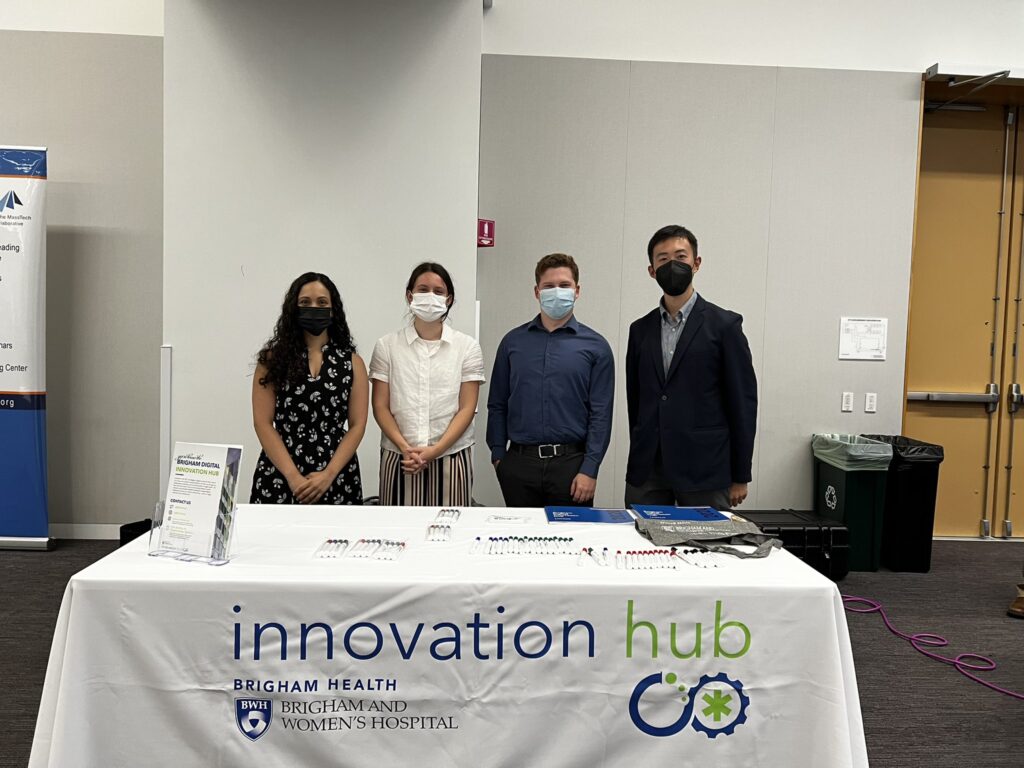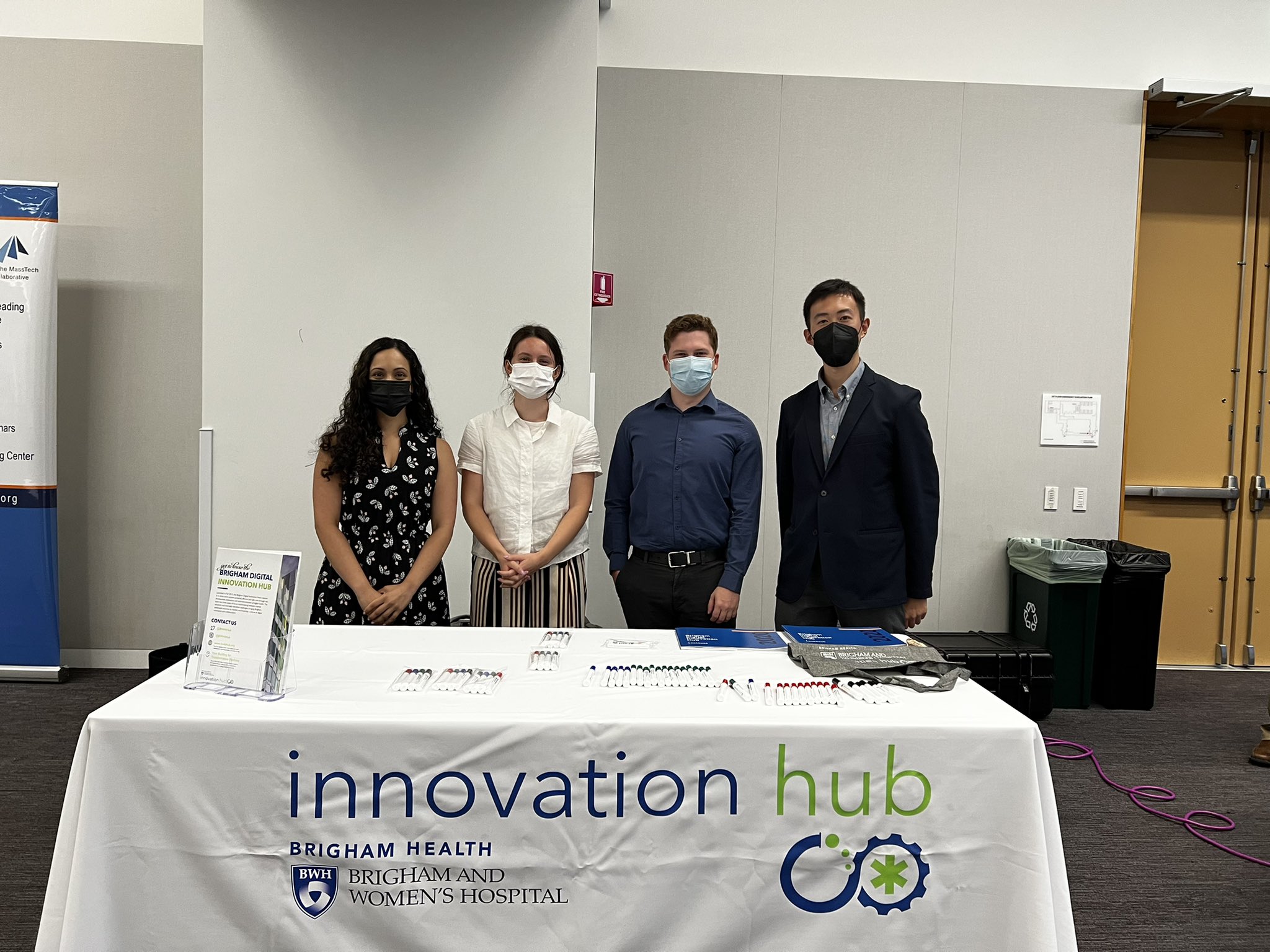On June 27th, Mass General Brigham hosted the final pitch event of the second Mass Digital Health COVID-19 Recovery Challenge at its Assembly Row headquarters. The event concluded what was a months-long competition, in which multiple teams sought to develop digital health care solutions that would address challenges created by the COVID-19 pandemic. The Brigham Digital Innovation Hub (iHub) served as one of the competition’s sandboxes and was paired with one of the four finalists, Slumber One through the Mass Digital Health Sandbox Network.
The event kicked off with a speech from Adam Landman, Chief Information Officer and Senior Vice President, Mass General Brigham and chair of the Mass Digital Health Council. From there, Carolyn Kirk, Executive Director of Mass Tech highlighted some of the latest successes in digital health adoption. Then, Julian Goldman, Medical Director of Biomedical Engineering, Mass General Brigham; Director for Mass General Medical Device “Plug-and-Play” (MD PnP) Program; and anesthesiologist at Mass General Hospital, provided a live demonstration of the remote monitoring of ventilators by live streaming into the Plug-N-Play Lab at Mass General Hospital.
The audience also heard from Mike Kennealy, Massachusetts’ Housing and Economic Development Secretary. Kennealy spoke about the potential for patients, providers, and organizations to transform the innovation landscape in Massachusetts through collaboration. Massachusetts Governor Charlie Baker provided remarks virtually, celebrating the growing digital health ecosystem in the Commonwealth.
Four finalists pitched their solutions to the judges. The first was pitch was by George Wang, whose app Slumber One utilizes personalized therapeutic techniques to assist patients experiencing insomnia. The second pitch came from Davis Kraus, whose solution, Outcome Referrals, attempts to create better matches between behavioral health therapists and patients. Then, Rosita Wang of HealthJay, pitched the startup’s telehealth platform, which seeks to improve care for historically underserved patients. The competition concluded with a pitch from Orion Wilmerding of BurnCam Medical, an artificial intelligence (AI) telemedicine platform designed to improve the ability of clinicians to assess burns.
The winner of the final round was Slumber One, attaining the grand prize of $100,000. The early-stage startup plans to work with Sogol Javaheri, MD, who they were matched with through the iHub. Dr. Javaheri is a sleep medicine specialist at Brigham and Women’s Hospital and Assistant Professor of Medicine at Harvard Medical School. She serves as Slumber One’s principal investigator.
The $100,000 will be used to help Slumber One continue their quest to improve the sleep health of those suffering from insomnia and sleep deprivation. Going forward, they will continue to work with the iHub and Dr. Javaheri to commence work on the proposed study at Brigham and Women’s Hospital.


